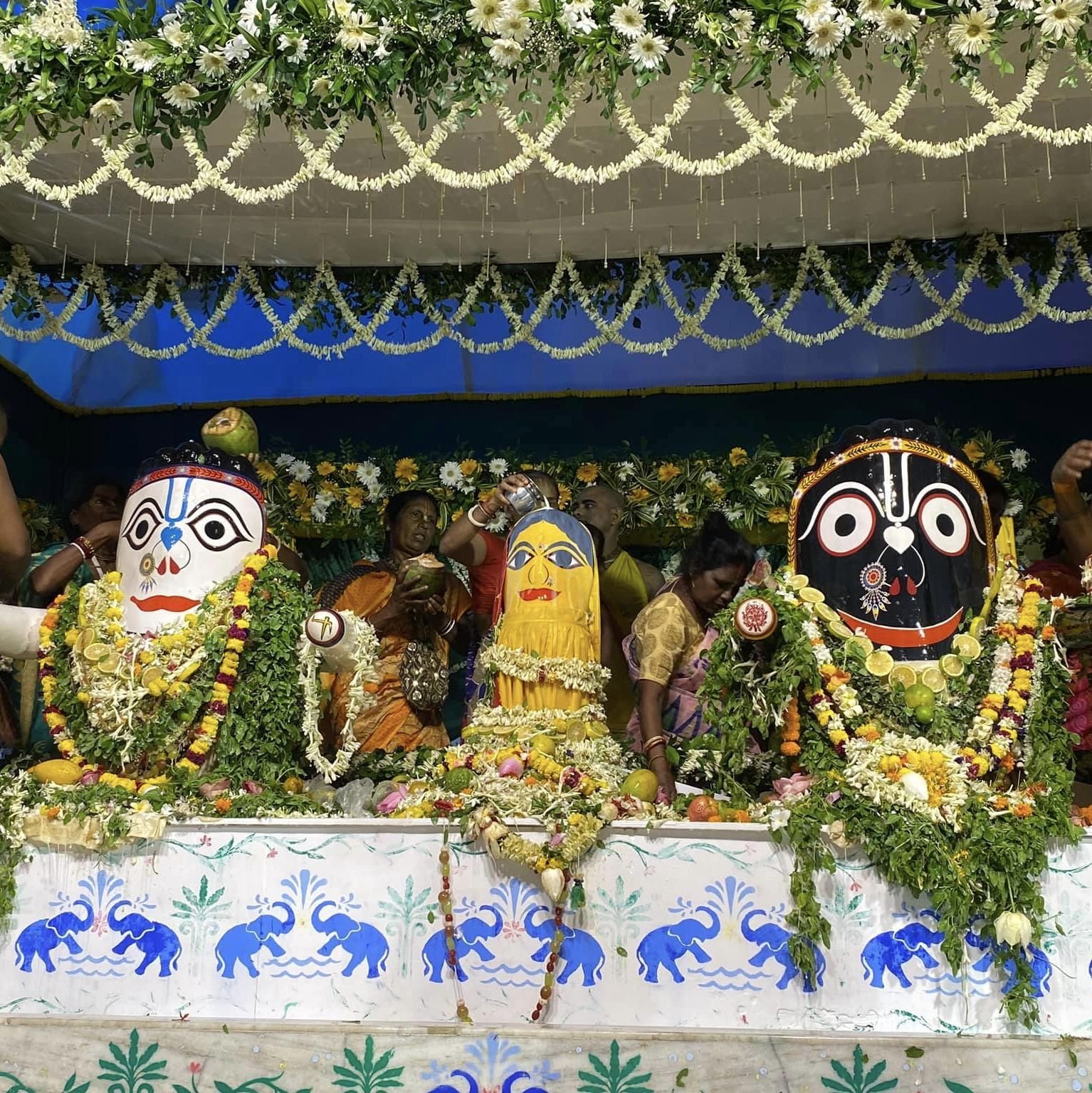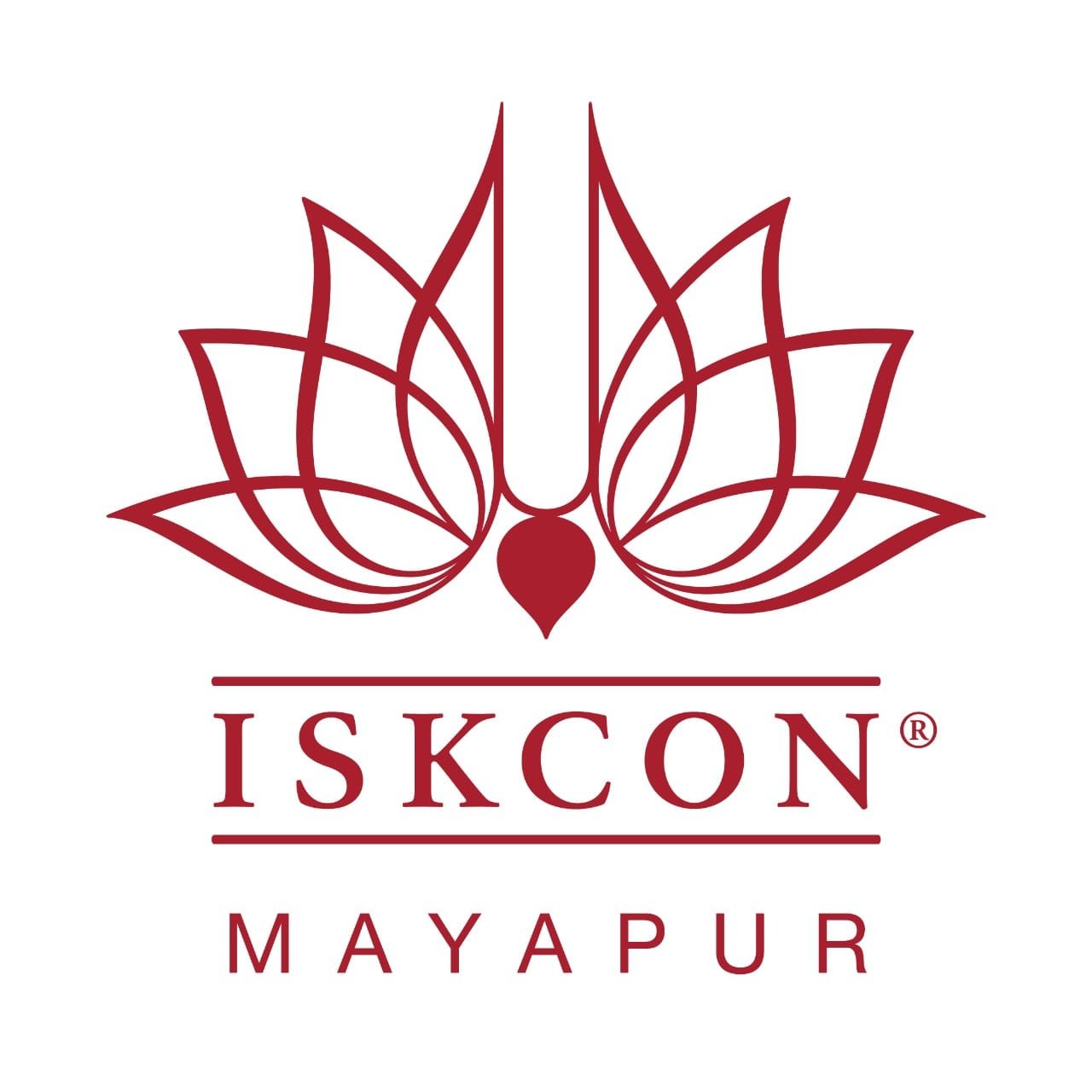

On the auspicious occasion of Snana Yatra—celebrating the appearance of Lord Jagannath—the 500-year-old Deities of Sri Jagannath, Baladeva, and Subhadra Devi at Rajapur (non-different from Puri Dhama) in Sri Navadvipa-dhama bestow their unlimited mercy by allowing everyone the rare opportunity to personally bathe Their Lordships.
The word anavasara is used when Śrī Jagannāthajī cannot be seen in the temple. After the bathing ceremony (snāna–yātrā), Lord Jagannātha apparently becomes sick. He is therefore removed to His private apartment, where no one can see Him. Actually, during this period renovations are made on the body of the Jagannātha Deity. This is called nava-yauvana. During the Ratha-yātrā ceremony, Lord Jagannātha once again comes before the public. Thus for fifteen days after the bathing ceremony, Lord Jagannātha is not visible to any visitors.
(CC Madhya 1.122 purport)
During Anavasara, after the Snāna-yātrā ceremony, Lord Jagannātha is absent from the temple for fifteen days so He can be renovated. This occurs annually. Janārdana, who is here being introduced to Śrī Caitanya Mahāprabhu, was rendering this service at the time. The renovation of Lord Jagannātha is also known as Nava-yauvana, which indicates that the Jagannātha Deity is being fully restored to youth.
(CC Madhya 10.41 purport)
Lord Jagannātha has a number of stalwart servants known as dayitās. These servants do not come from very high-caste families (brāhmaṇas, kṣatriyas or vaiśyas), but because they are engaged in the service of the Lord, they have been elevated to a respected position. Thus they are known as dayitās. These servants of Lord Jagannātha take care of the Lord from the day of the Snāna-yātrā up to the time the Lord is carried from the throne to the Ratha car. In the Kṣetra-māhātmya these dayitās are said to come from the śabaras, a caste that keeps and sells pigs. However, among the dayitās there are also many who come from the brāhmaṇa caste. Those dayitās coming from the brāhmaṇa families are called dayitā-patis, or leaders of the dayitās. The dayitā-patis offer food such as sweetmeats to Lord Jagannātha during the anavasara, the resting period after Snāna-yātrā. They also make the early-morning offering of sweetmeats daily. It is said that during the anavasara Lord Jagannātha suffers from fever and that the dayitā-patis offer Him an infusion of drugs represented by fruit juice. It is said that in the beginning Lord Jagannātha was worshiped by the śabaras and was known as the Deity Nīla Mādhava. Later, when the Deity was established in the temple, the Lord became known as Jagannātha. Because the Deities were taken from the śabaras, all the śabara devotees were elevated to the position of dayitās.
(CC Madhya 13.8 purport)
After collecting these books, Śrī Caitanya Mahāprabhu returned to Jagannātha Purī. At that time, the bathing ceremony of Jagannātha was taking place, and He saw it.
(CC Madhya 1.121)
After seeing the bathing ceremony of Lord Jagannātha, Śrī Caitanya Mahāprabhu washed and cleaned Śrī Guṇḍicā temple with the assistance of many devotees.
(CC Madhya 1.133)
